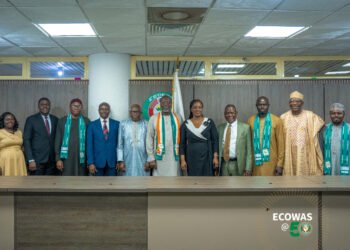Director of Centre for European Studies (CES) at the University of Ghana, Dr Kwame Asah-Asante, has revealed that membership is not compulsory when it comes to one joining a pressure or interest group in the country.
Dr Asah-Asante indicated that it doesn’t matter whether an individual belongs to a think tank or a pressure group, so long as they can achieve what they set out to do. He explained that these groups are essentially there to address the needs of their members at a point in time. As such, they are there to most often than not help in the formation of policies in the country.
“All these groups, think tanks, interest or pressure groups, they fall under a bigger umbrella or a civil society organisation. Here, membership is not compulsory. It’s a loose association or groups with easy membership… People don’t have detailed knowledge about the formation of these groups. This is just an ordinary group of people that are pursuing a certain interest to bring government’s attention to the needs of the people and also satisfy their people’s interest. Let us also remember that the universities are also a part of civil society organisations… They are not necessarily evil organisations.”
Dr Kwame Asah-Asante
Commenting on the contribution and impact of pressure groups on Ghana’s democracy, Dr Asah-Asante stated that pressure groups have been one of the important civil society organisations that are responsible for putting pressure on government and making sure that it does the needful in satisfying the interest of its people. He opined that these groups articulate the views of the public, champion the course of democracy, and protect the rights of the underprivileged.
“So, it is a very important organisation and if you trace from 1993 up to today, there is no doubt in my mind the role that pressure groups have played over the years to ensure that we have a sustained democracy and that we have people’s rights respected and so forth.”
Dr Kwame Asah-Asante
Funding pressure groups
Dr Asah-Asante expressed that although there is the tendency of associating pressure groups to a political party, there isn’t a cause for concern. He elaborated that whether these groups are called opposition or not is insignificant, so long as “what they are doing is the truth” and there is nothing untoward about their activities.
“People will put them in those categories but for us as students of politics we are not worried because if you look at the basic thing that they do is that they put pressure on government for government to attend to the need of the people. By that definition, you will understand that there are people who put pressure on government and for that matter they act as opposition to government. There’s nothing wrong with that, provided they do it within a certain context [and] provided that what they are saying is the truth and it will benefit the people.”
Dr Kwame Asah-Asante
Elaborating on the relevance in knowing who the sponsor of a pressure group is or how it is funded, Dr Asah-Asante revealed that it does not matter once one understands the different context under which pressure groups operate. Citing the Ghana Bar Association and the Ghana Jornalists Association, he intimated that these are associational pressure groups which are self-sufficient and have a common interest they desire to pursue and hold government accountable.
“I mean they have their own finances, members pay dues and all that, and they don’t look for funding from elsewhere. They generate resources from within. Then we have anomic pressure groups. They are born out of certain concerns of society. So, if there is an issue, then quickly people rally behind the table and decide to come out to pursue the interest of the ordinary man or their members.”
Dr Kwame Asah-Asante
READ ALSO: Banky W Wins PDP Reps Primary Rerun




















